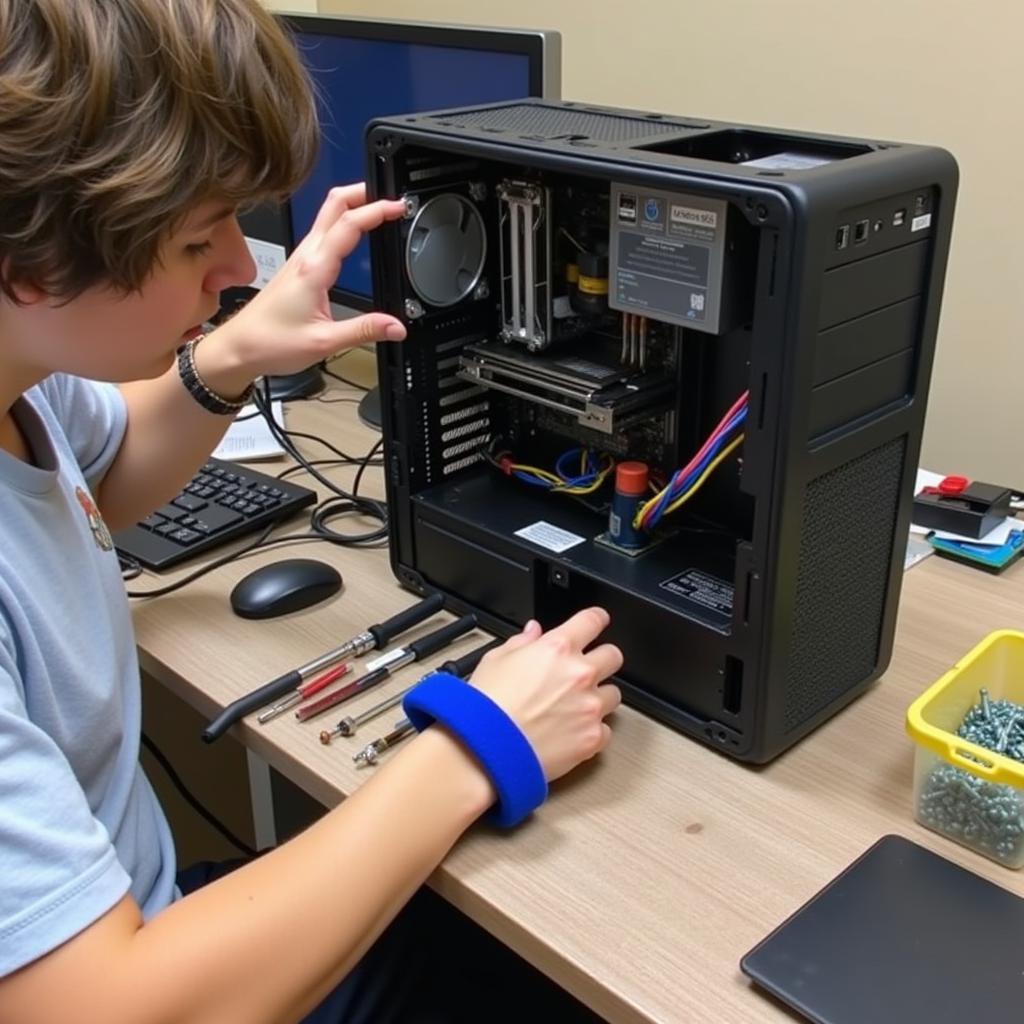What Are the Career Opportunities in Computer Hardware Servicing?
The world runs on computers, and computers run on hardware. While software often grabs the spotlight, it’s the physical components that make everything tick. This reliance on computer hardware translates into a robust and evolving job market for skilled technicians who can build, repair, and maintain these essential machines. So, if you’re someone who enjoys troubleshooting, problem-solving, and the intricate world of electronics, then a career in computer hardware servicing might be the perfect fit for you.
Diving into the Digital Engine Room: Exploring Hardware Service Roles
“Computer hardware servicing” is a broad term that encompasses a range of professions, each with its unique set of responsibilities and career trajectories. Let’s break down some of the most popular career paths:
1. Computer Repair Technician
As the name suggests, these are the go-to professionals for diagnosing and fixing hardware issues in computers and related devices. From malfunctioning motherboards to faulty hard drives, computer repair technicians have the know-how to get your system back up and running.
- Responsibilities: Troubleshooting hardware problems, replacing damaged components, performing software installations and updates, conducting routine maintenance, and advising clients on hardware upgrades.
- Work Environments: Repair shops, electronics stores, IT departments, or freelance work.
 Computer repair technician working on a desktop computer
Computer repair technician working on a desktop computer
2. Network Technician
In today’s interconnected world, networks are the backbone of businesses and organizations. Network technicians are the skilled professionals who ensure these networks run smoothly and securely. They specialize in installing, configuring, and maintaining network equipment, ensuring seamless data flow and connectivity.
- Responsibilities: Installing and configuring routers, switches, and cabling, troubleshooting network connectivity issues, implementing security protocols, and monitoring network performance.
- Work Environments: IT departments, telecommunications companies, data centers, or as part of network installation and maintenance contractors.
3. Field Service Technician
If you prefer a job that gets you out and about, then becoming a field service technician might be the right choice. These technicians travel directly to client locations, such as businesses, schools, or private homes, to address their computer hardware needs.
- Responsibilities: Providing on-site troubleshooting and repair services, installing and configuring hardware at client locations, providing technical support to clients, and managing hardware inventory.
- Work Environments: Working independently as a contractor, or as part of a field service team for a larger company.
4. Systems Administrator
While systems administrators focus on both hardware and software, they need a strong understanding of computer hardware to manage and maintain the servers and networks that power organizations.
- Responsibilities: Installing and configuring servers, managing data storage systems, implementing security measures, optimizing network performance, and troubleshooting hardware-related issues.
- Work Environments: Typically employed by companies and organizations of all sizes across various industries.
Essential Skills for Hardware Heroes
No matter which career path you choose, succeeding in computer hardware servicing requires a specific set of technical skills and personal qualities:
-
Technical Skills:
- Hardware Expertise: A deep understanding of computer components, their functions, and how they interact.
- Troubleshooting Acumen: The ability to systematically diagnose and resolve hardware problems.
- Software Literacy: Familiarity with operating systems and common software applications.
- Network Fundamentals: Basic knowledge of network protocols, configurations, and troubleshooting.
-
Personal Qualities:
- Problem-Solving Prowess: The ability to think critically and find solutions to complex hardware challenges.
- Detail-Oriented Approach: Precision and accuracy are crucial when working with intricate hardware components.
- Patience and Persistence: Hardware issues can be stubborn, requiring patience and determination to resolve.
- Communication Skills: Effectively communicating technical information to both clients and colleagues.
The Future is Bright: Job Outlook and Earning Potential
The demand for skilled computer hardware professionals remains strong and is projected to grow in the coming years. The Bureau of Labor Statistics projects a 4% growth rate for computer and information technology occupations from 2021 to 2031, faster than the average for all occupations.
Salaries in the field vary depending on factors such as location, experience, and specific job title. As of May 2021, the median annual wage for computer, automated teller, and office machine repairers was $40,830. However, with specialized skills and experience, earning a higher income is certainly attainable.
Fueling Your Hardware Career: Education and Training
Breaking into the world of computer hardware servicing typically requires a combination of education and training:
- Associate’s Degree: Many community colleges and technical schools offer associate’s degrees in computer repair technology or related fields.
- Certifications: Industry-recognized certifications, such as CompTIA A+ or Network+, can demonstrate your skills and enhance your employability.
- On-the-Job Training: Many employers provide on-the-job training to help you gain practical experience and develop specialized skills.
Your Journey into the Heart of Technology Starts Now
Entering the field of computer hardware servicing offers a world of opportunity for individuals who possess a passion for technology and a desire to work with their hands. Whether you choose to specialize in computer repair, network administration, or field service, a rewarding career awaits those who are willing to learn, adapt, and embrace the ever-evolving world of computer hardware.
